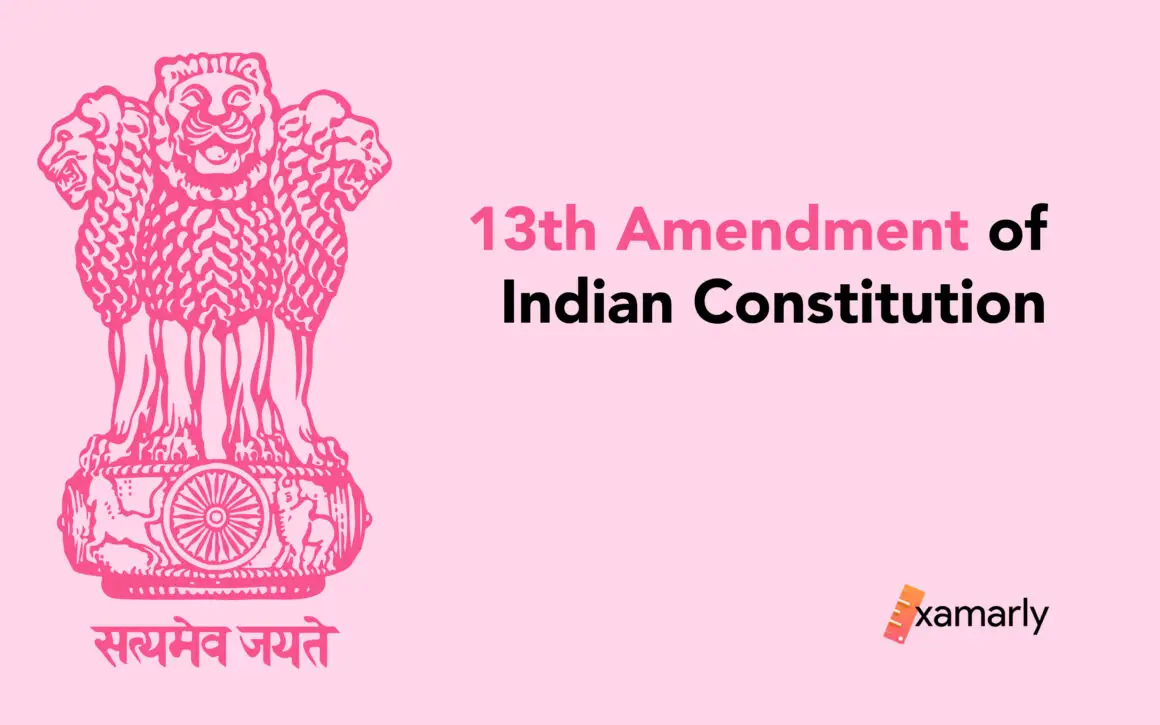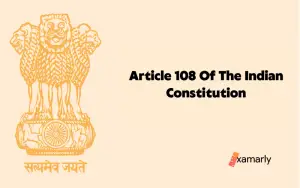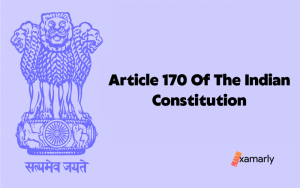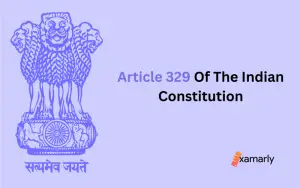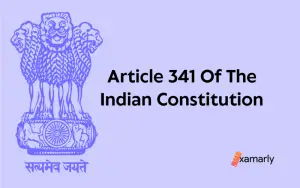Nagaland was given the status of a state and tailored specific provisions by the 13th Amendment of Indian Constitution of 1962.
Read this article to learn more about the 13th amendment of Indian constitution. This article is worth reading if you are preparing for a competitive examination like UPSC.
13th Amendment Of Indian Constitution
Nagaland was given the status of a state and given specific constitutional provisions under the 13th Constitutional Amendment Act of 1962. This is one of the most comprehensive amendments in the history of Indian Constitutional Amendments.
Within the State of Assam, Nagaland existed as a tribal region. The leaders of the Naga People’s Convention and the Government of India reached an agreement in July 1960. The amendment objective was to incorporate the state of Nagaland into the Union of India.
The House of Representatives debated and adopted the 13th Amendment of Indian Constitution in 1962, and it later went into force on the date determined by the Central Government.
Objects And Reasons
- The Naga Peoples Convention’s leaders and the Indian government reached an agreement in July 1960. The Naga Hills-Tuensang Area (Nagaland), which is currently a Part “B” tribal area inside the State of Assam, was decided to be created as a separate State within the Union of India.
- The Amendment inter alia provides that-
- Additional responsibilities would fall to the state of Nagaland’s governor. Maintaining law and order is a part of this as long as hostile acts are causing a disturbance.
- The Governor will be in charge of all financial matters. This also involves the cash provided by the Government of India to the new State;
- For ten years, the governor of Nagaland will oversee the administration of the Tuensang District, after which time it is anticipated that locals will be able to take on greater administrative responsibilities. There will be a Regional Council established for the Tuensang District. The regional council comprises elected officials from the nearby tribes. The Village, Range, and Area Councils in that district shall be overseen and guided by this Regional Council, and no law made by the Nagaland legislature will apply to that area unless it is recommended by the Regional Council;
- Under this major Amendment, Acts of Parliament shall not apply to Nagaland unless the Nagaland Legislature so determines with respect to:
- (i) religious or social practices of the Nagas living in the Tuensang Area;
- (ii) Naga Customary Law and procedure;
- (iii)administration of the legal system, including decisions made by Naga Customary Law;
- (iv) transfer of land and resource ownership.
- Given that these issues are particular to the proposed new state of Nagaland. They must be addressed in the Constitution’s original text. This Bill seeks to amend the Constitution to address the aforementioned concerns and those that are linked to them.
Essential Provisions
“Temporary Transitional and Special Provisions” has been added to the constitution’s Part XXI (articles 369–392) in place of “Temporary and Transitional Provisions.” [Section 2(a)]
The Act’s section 2(b) creates a new article 371A with the following unique clauses in accordance with the state of Nagaland:
(a)Acts of Parliament shall not be applicable to Nagaland unless the Nagaland Legislature so determines with respect to:
(i)the Nagas’ religious or social customs;
(ii)Customary Law and Practice in Naga;
(iii)judgments made in accordance with Naga Customary Law in the administration of civil and criminal justice;
(iv)transfer of land and resource ownership.
(b) According to this amendment, the Governor of Nagaland has a special obligation to maintain the state’s peace and order as long as internal disturbance persists in the Naga Hills-Tuensang Area. He also has the power to decide what course of action should be taken in this case after consulting the council of ministers.
The Governor’s decision at his discretion shall be final. Furthermore, the legality of anything he does shall not be questioned on the grounds that he ought or ought not to have acted in the exercise of his individual judgment.
The President has the power to relieve the governor of these extra duties, only if he or she is convinced that the state’s unique circumstances no longer exist.
(c)The Governor of Nagaland shall ensure that any funds provided by the Government of India from the Consolidated Fund of India for any specific service or purpose are included in the demand for a grant relating to that service or purpose and not in any other demand when making his recommendation with regard to any demand for a grant;
(d)A regional council for the Tuensang district with 35 members will be constituted as of the date the Nagaland Governor may designate in this regard by public notification, and the Governor will, at his or her discretion, make laws stipulating-
(i)the regional council’s composition. Additionally, the procedure for selecting the regional council members is as follows:
The vice-chairman of the regional council shall be chosen by the members of the regional council from among themselves, with the Deputy Commissioner of the Tuensang district serving as the chairman ex officio of the regional council;
(ii)the requirements to be selected for and to serve on the regional council;
(iii)the regional council’s period of office and the wages and benefits, if any, that will be provided to its members;
(iv) how the regional council conducts its business and how it operates;
(v) the appointment of officers of the regional council and personnel, as well as their terms of service;
(vi) any other topic for which it is necessary to create rules to ensure the regional council’s legitimacy and effective operation.
(2)(i)For a period of ten years and longer if required, the government is authorized to continue administering and making regulations for the Tuensang district’s peace, progress, and good governance.
(ii)Unless the Governor specifically decides otherwise, no act of the Nagaland parliament shall apply to this district.
The Governor shall, in his discretion, make arrangements for an equitable distribution of any funds supplied by the Government of India to the Government of Nagaland to satisfy the needs of the State of Nagaland as a whole;
(iii)Additionally, the governor has the executive authority to choose a Minister for the Tuensang district from among the legislators who represent the Tuensang district. The Chief Minister will be informed of all matters pertaining to the Tuensang district, however, the Minister for Tuensang Affairs will deal with and have direct access to the Governor. However, the governor will ultimately decide on all issues pertaining to this district at his or her discretion.
(3) References to the elected members of the Legislative Assembly of a State or to each such member must include references to the members or members of the Legislative Assembly of Nagaland elected by the regional council constituted under this article in articles 54 and 55 and clause (4) of article 80;
(4) Article 170, clause (1), of the constitution applies to the Legislative Assembly of Nagaland as if the words “forty-six” were replaced for the word “sixty.”
In the aforementioned section, the term direct election from territorial districts in the State includes elections held by the members of the regional council constituted pursuant to this article;
Referring to the territorial constituencies in clauses (2) and (3) of article 170 refer to the territorial constituencies in the districts of Kohima and Mokokchung.
Within three years of Nagaland’s establishment, the President has the option to overcome any problem in carrying out any of the aforementioned requirements of this article
Conclusion
According to the 13th Amendment of Indian Constitution of 1962, Nagaland was given the status of a state and given special provisions, with special protection provided for in Article 371A.


